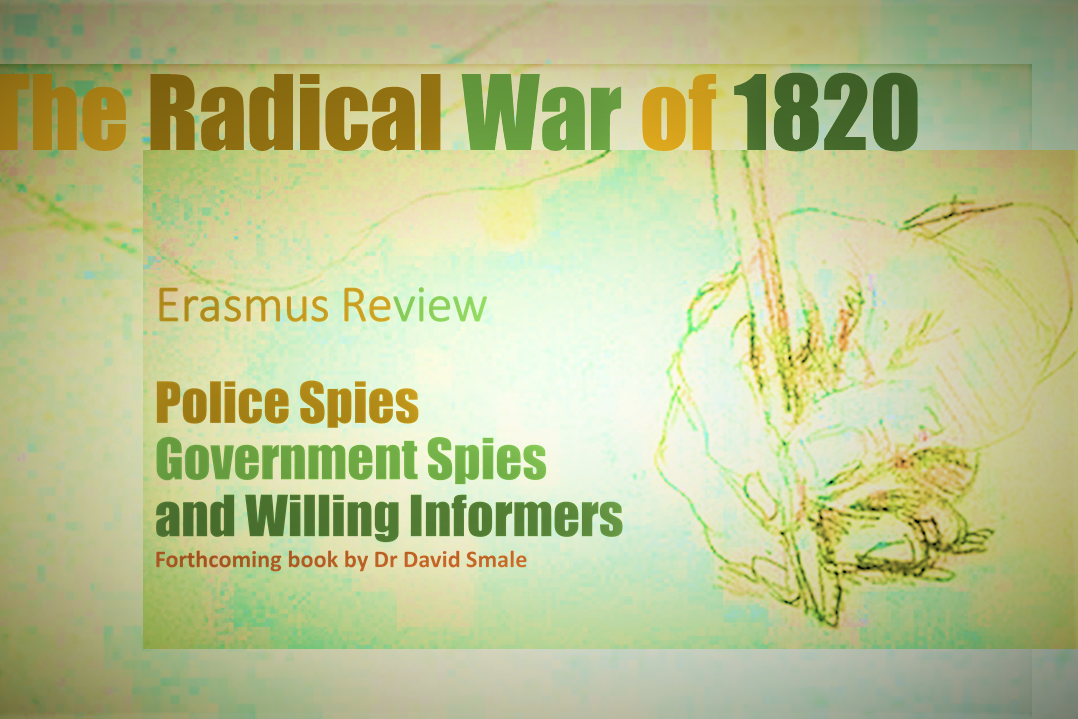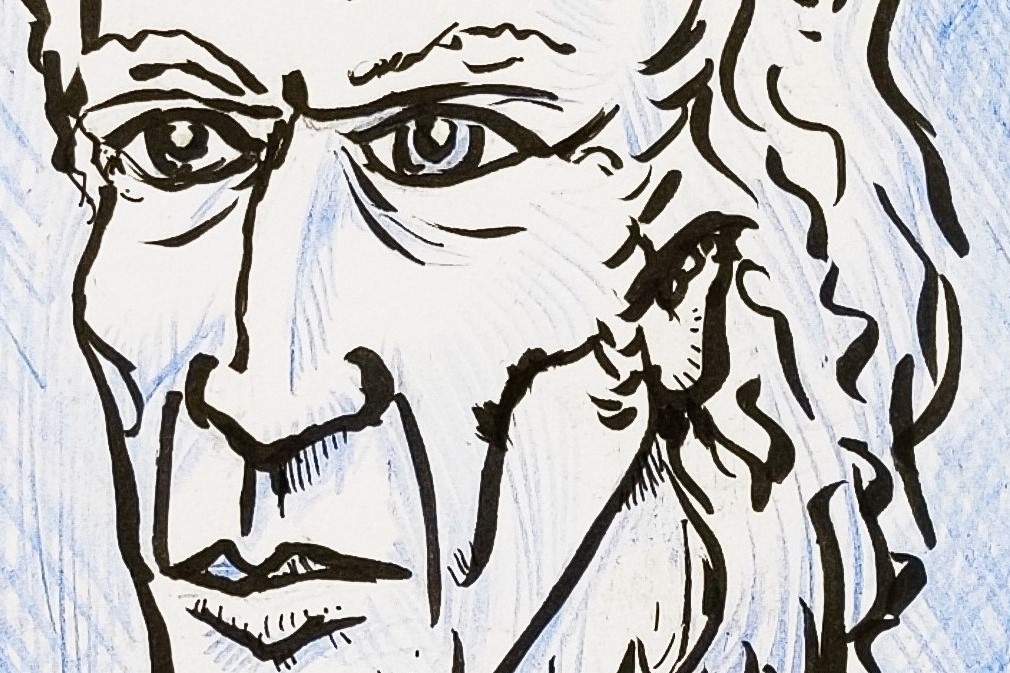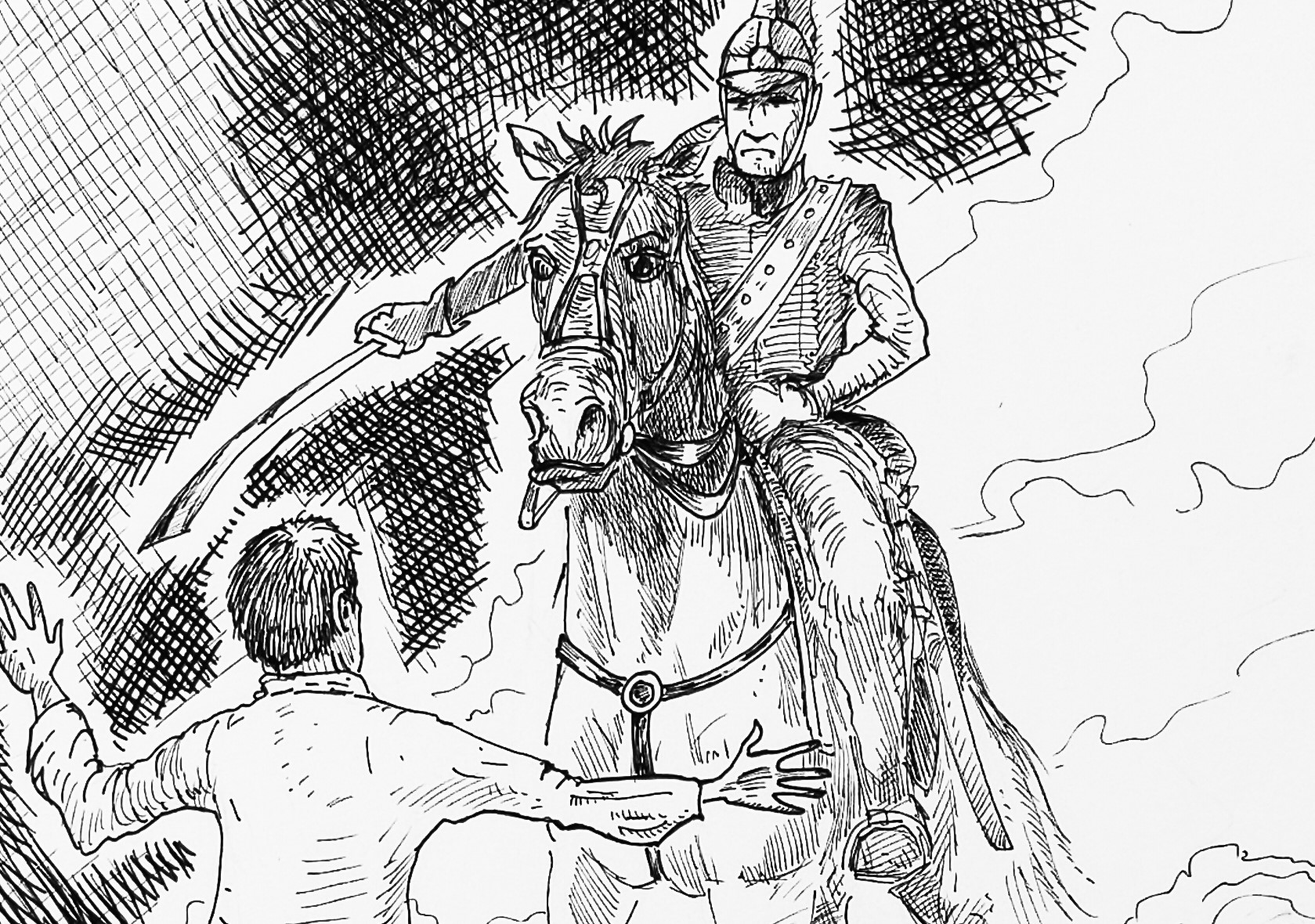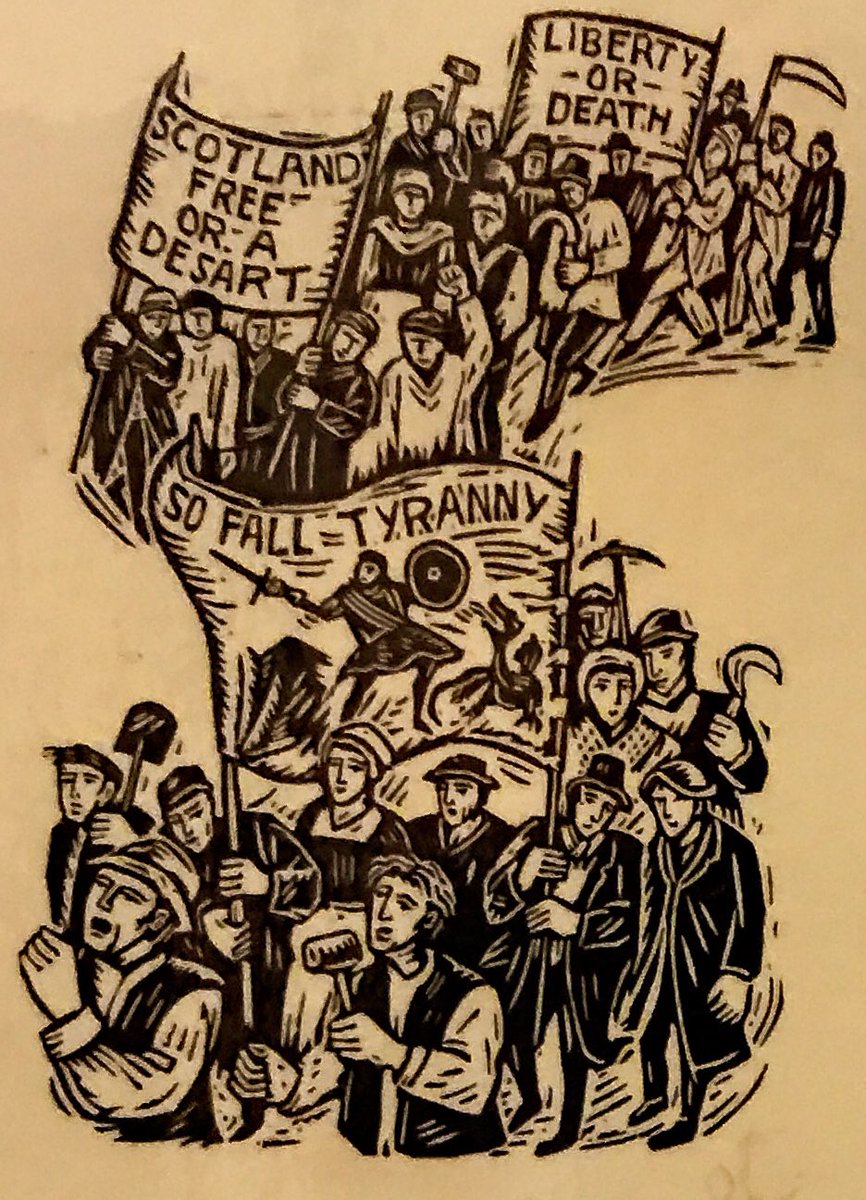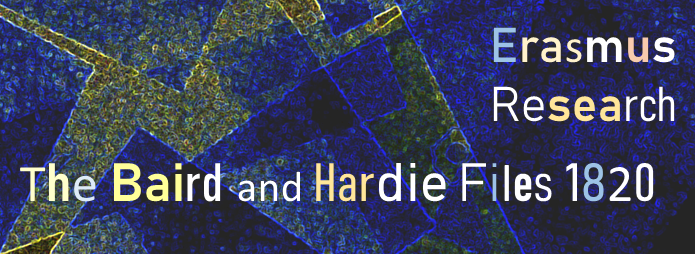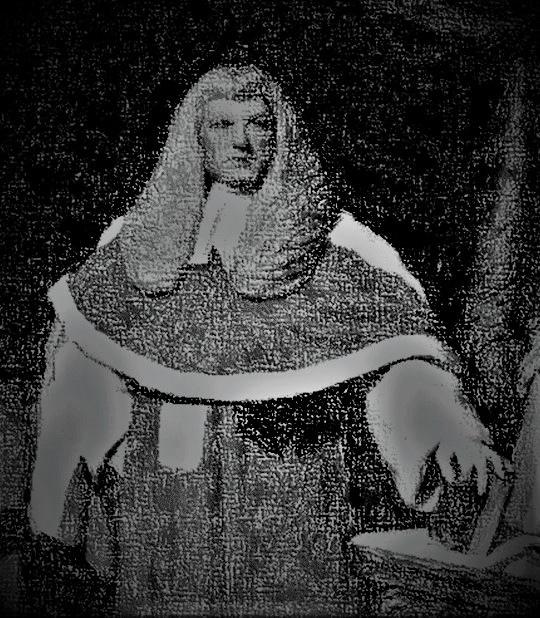
This is the second section of Chapter XII of the serialisation, the wording reproduced exactly as it appeared in the Stirling Sentinel, on Tuesday 30th April 1889.
The Lord Advocate had stated in his opening address in the case of Hardie that Baird offered a bill in payment of the account, but Buchanan denied that there was anything said about a bill. Evidently some confusion had arisen by the use of the word “note” in the precognition, but the prosecution was loth to abandon the idea that a six-month’s bill had been offered by Baird, because the inference was that he expected by that time that the monarchy would be superseded by a republic, and his bill as an agent of the republic would be duly honoured. This was all nonsense, as appears from the answers given by the publican at the trial of Baird. Sergeant Hullock’s wrongheadedness on this point and Buchanan’s simple-mindedness, came out strongly in the following examination:-
In what way did they offer to pay you at first? –
They came and axed the bill, and I gave it off my tongue; I stated it was 8s, and he axed if 7s6d would do, and I said yes.
You first charged 8s! –
Yes, the reckoning came to 8s
What conversation took place about a bill at six months, or something of that sort? –
They did not offer a bill.
What was said about a bill? –
I cannot recollect nothing about a bill. They did not offer a bill.? –
I asked you what was said about a bill at six months? –
The man that paid me axed if I would change a note.
What did you say to that? –
I said yes, surely if the Mistress has as much change.
What was done in consequence of that? – “Perhaps you will not be very fond of it, for it is payable six months after date.”
He tendered you a bill? –
No, he did not speak about a bill; it was a note.
Did you see the note? –
No, he never offered the note.
What did you say to that? Perhaps you objected to that? –
I said the present time was my time for my merchant.
Did you in consequence of that drop your demand for 8s to 7s.6d? –
Yes, he paid me 7s.6d.
Did you give any receipt for it, now? –
Yes
What sort of receipt did you give? –
A receipt in the same way which he dictated to me to make it out.
Was he a tall man or a short man? –
He was a little man.
That is the little man standing there? –
Yes.
His name is Baird? –
Yes
Was that the man with whom a conversation took place about the bill at six months, and about the reckoning? –
Yes.
And so the witness was committed to the absurd statement that a bill at six months was offered to pay for the Radicals’ refreshment!
Thomas Wright, nailer, Camelon, and William Wright, joiner, two of the prisoners who had been liberated on agreeing to give evidence for the Crown, were examined to prove that on the Monday before the battle of Bonnymuir, Baird and others had received thirteen pike heads from Andrew Best jun. who was paid some shillings for them by Baird.
Two declarations emitted by Baird were read. In the first of these, in answer to the question what purpose the party had in view, he stated that according to the mode in which reformers proceed no purpose was mentioned; that his intention was to obey the orders that he received, and if he had asked what that purpose was he would have received no answer. The purpose was connected with reform; it was a radical reform in the Commons House of Parliament. He believed there was something of annual parliaments in it; reform was the general purpose they had in view, but he did not know the particular measures which were to be accomplished at that particular time in furtherance of this purpose. He had been a private in the 95th Regiment for seven years, and was discharged about two or three years ago upon his own requisition when he had served out his time. The party at Bonnymuir resisted as a mob, but not upon any particular plan, and he resisted along with the rest, but he gave no orders. There was nothing said about forming a square, which it was impossible to do with eighteen men.
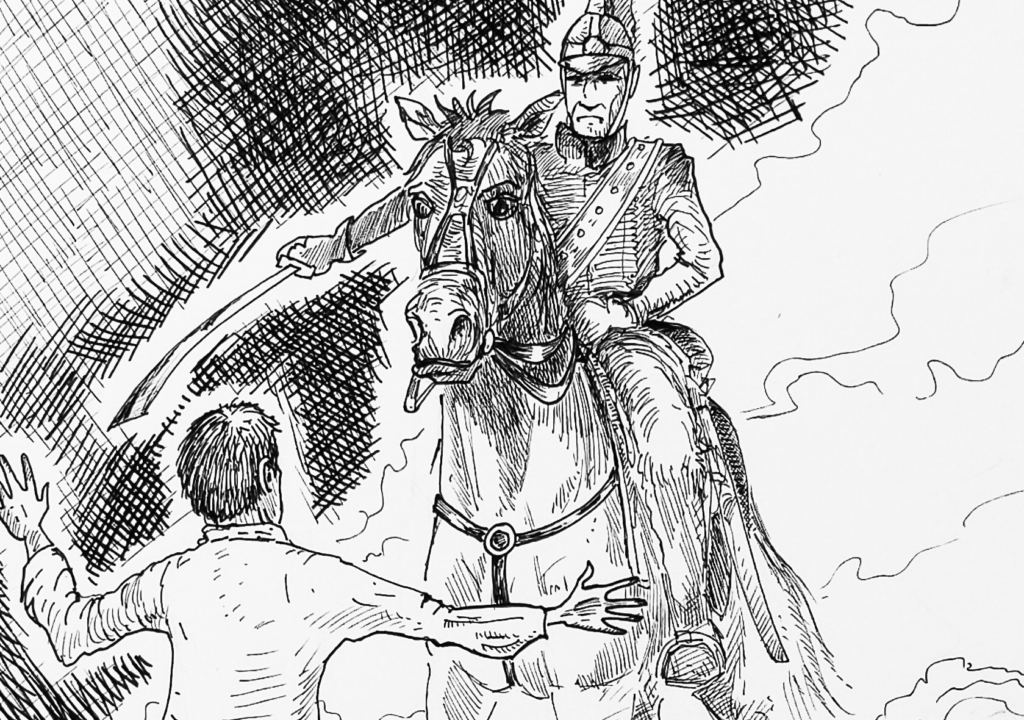
After a second unavailing effort to prevent the Treasonable Address going to the jury, Mr Jeffrey began his address on behalf of the prisoner, an address more closely reasoned than the one he delivered in Hardie’s case, and altogether more powerful. Sir William Rae replied and the Lord Justice summed up. The jury retired at twenty minutes past twelve, and returned in an hour and three quarters with a verdict of guilty on the second count of the indictment.
The court resumed next morning, when Mr Jeffrey stated that after the event of the trials of the two last days, that had been gone through with so much deliberation and so great a struggle on both sides, he had advised the unhappy persons at the bar to retract their plea of not guilty, and acknowledge their guilt openly in Court. This was accordingly done by the following prisoners: – Thomas McCulloch, Benjamin Moir, Allan Murchie, Alexander Latimer, Alex Johnston, Andrew White, David Thomson, James Wright, William Clarkson, Thomas Pike, Robert Gray, Alex Hart, John Barr, William Smith, Thos. McFarlane, John Anderson, and William Crawford.
to be continued…

